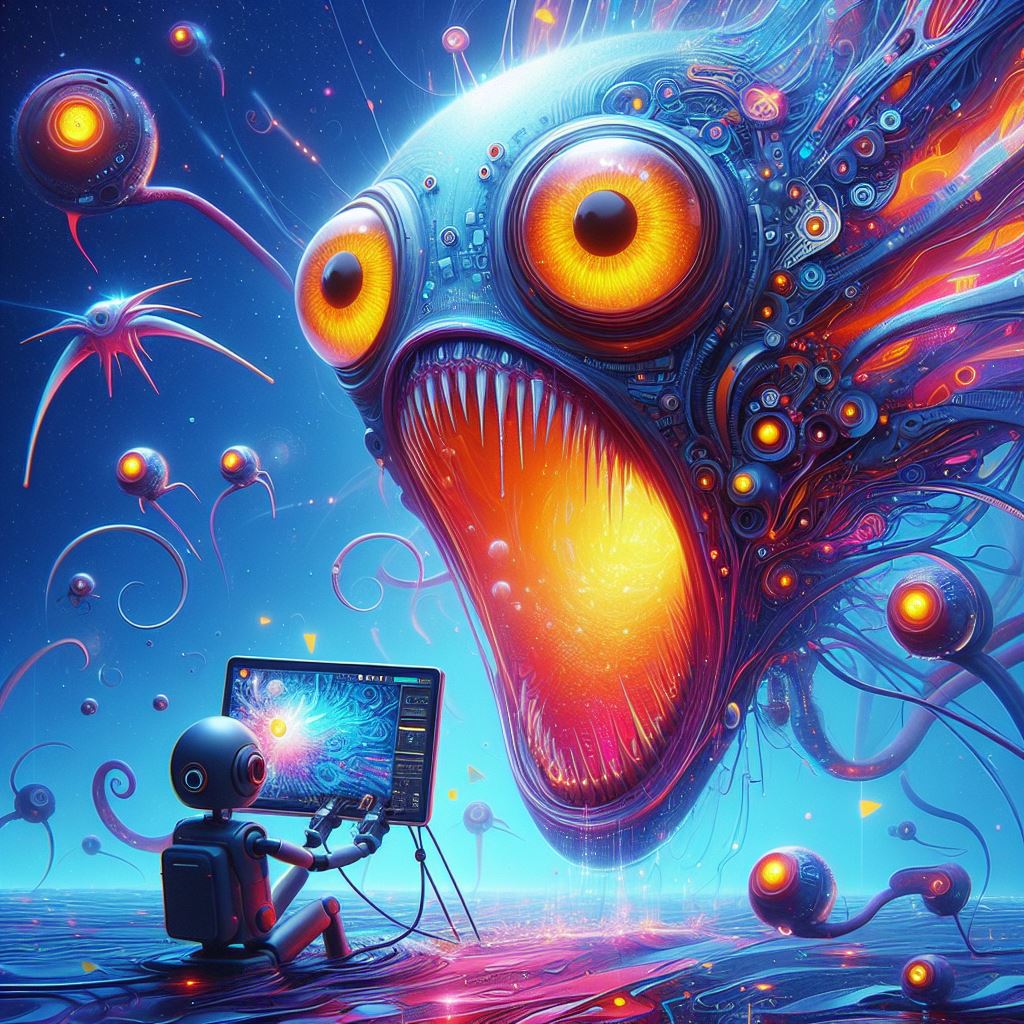In a world where technological advancements are constantly reshaping the landscape of human existence, OpenAI’s latest creation, Sora, stands out as a testament to the remarkable capabilities of artificial intelligence (AI). With the ability to generate realistic videos from simple text prompts, Sora represents a significant leap forward in the realm of AI-driven creativity. Yet, alongside the excitement surrounding this groundbreaking innovation, there looms a shadow of concern regarding its potential implications for society.
At its core, Sora harnesses the power of a sophisticated generative model trained on a vast dataset of videos sourced from the web. Through the input of text prompts, users can instruct Sora to produce videos across a diverse array of genres, ranging from animation and documentary to horror and comedy. The fluidity with which Sora can translate written language into visual storytelling is nothing short of astounding, opening up a world of creative possibilities previously unimaginable.
However, beneath the surface of this technological marvel lies a complex web of ethical considerations and potential pitfalls. One of the primary concerns surrounding Sora revolves around the dissemination of misinformation and the manipulation of reality. With the ability to generate highly realistic videos based on nothing more than text, Sora could be wielded as a potent tool for spreading falsehoods and propaganda. The implications for public discourse, political integrity, and societal trust are profound, raising urgent questions about the responsibility of AI developers to mitigate the risks of their creations.
Moreover, the specter of bias and discrimination looms large in the realm of AI-generated content. As with any machine learning system, Sora’s output is only as unbiased as the data on which it was trained. Without careful attention to representation and diversity within its training dataset, Sora runs the risk of perpetuating harmful stereotypes and reinforcing existing power imbalances. The potential for Sora-generated content to inadvertently propagate discrimination or marginalize certain communities underscores the need for rigorous ethical oversight and accountability measures.
Beyond the realm of misinformation and bias, there are broader implications to consider regarding the impact of AI-driven creativity on human society. With Sora blurring the lines between human and machine-generated content, questions arise about the nature of artistry, authorship, and authenticity in an increasingly automated world. As AI technologies continue to evolve and proliferate, fundamental shifts in our understanding of creativity and expression are inevitable, raising profound philosophical and cultural questions that demand careful consideration.
In response to these concerns, OpenAI has taken proactive steps to address the ethical implications of Sora’s development and deployment. The organization has engaged in ongoing collaboration with experts from diverse fields, including ethics, law, and social science, to assess and mitigate the potential risks associated with the tool. Additionally, OpenAI has opted to limit access to Sora, granting entry only to select researchers and developers who have undergone rigorous vetting and training.
While these measures represent important steps towards responsible AI governance, they are by no means a panacea for the complex ethical challenges posed by Sora and similar technologies. As AI continues to advance at a rapid pace, it is incumbent upon researchers, policymakers, and society as a whole to engage in thoughtful dialogue and proactive action to ensure that these powerful tools are wielded responsibly and ethically.
OpenAI’s Sora represents a groundbreaking achievement in the field of AI-driven creativity, offering unprecedented capabilities for generating realistic videos from text prompts. However, alongside its potential for innovation and artistic expression, Sora also raises profound ethical concerns regarding misinformation, bias, and the nature of creativity in the age of artificial intelligence. As we navigate the ethical complexities of AI-driven technologies like Sora, it is essential to approach their development and deployment with caution, foresight, and a commitment to ensuring their positive impact on society.


My brother suggested I would possibly like this website.
He was once totally right. This put up truly made my day.
You can not imagine just how a lot time I had
spent for this info! Thanks!
Feel free to surf to my page vpn special coupon
Heya i am for the primary time here. I found
this board and I in finding It truly useful & it helped me
out much. I hope to present something again and aid others such as you aided me.
my webpage: vpn special
It’s an awesome piece of writing for all the internet viewers; they
will obtain advantage from it I am sure.
my web blog :: vpn coupon code 2024
Good write-up. I certainly appreciate this site. Continue the good work!
Have a look at my blog post: vpn special coupon code 2024
Hello there, I found your blog via Google whilst looking for a related topic, your website came up, it looks great.
I have bookmarked it in my google bookmarks.
Hi there, simply changed into alert to your blog through Google,
and located that it is truly informative. I am going
to watch out for brussels. I’ll be grateful should you proceed this in future.
Lots of people will be benefited out of your
writing. Cheers!
My homepage – vpn 2024
It’s wonderful that you are getting thoughts from this article as
well as from our dialogue made here.
my web blog :: facebook vs eharmony to find love online
Just want to say your article is as astounding. The clarity in your post
is just cool and i could assume you’re an expert on this subject.
Well with your permission let me to grab your
feed to keep up to date with forthcoming post. Thanks a million and please carry on the rewarding work.
my blog … nordvpn special coupon code